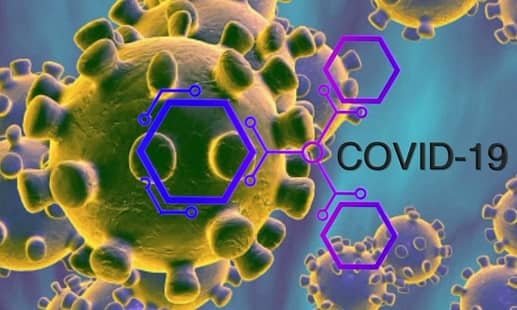What is COVID-19?

COVID-19 is a disease that affected every part of the world, some more than others. Along with the virus, panic and hysteria created by a lack of knowledge about the disease also affected people. It is a disease caused by a virus called SARS-CoV-2 and while most people with COVID-19 have mild symptoms only, some can become severely ill.
The chances of this disease affecting older adults and people with certain underlying medical conditions or co-morbidities in a more severe way are higher. Post-COVID conditions are also posing a wide range of health issues to people. These health problems can affect a person four or more weeks after first getting COVID-19. Post-COVID complications can also affect people who did not experience severe COVID-19 symptoms.
Let’s answer some FAQs about COVID-19 to help you understand it better and take good care of yourself.
FAQs about COVID-19
How does COVID-19 spread?
There are three ways in which the COVID-19 virus can spread:
- When a person is at a close distance to an infected person who is exhaling small droplets and particles that contain the virus. Breathing in that air can spread the virus.
- If these small droplets and particles containing the virus land on the eyes, nose, or mouth, of a person it can spread the virus. This can take place, especially through splashes and sprays like a cough or sneeze.
- The virus can also spread by touching the eyes, nose, or mouth with hands that have traces of the virus on them.
What is the community spread of the virus?
When people in an area have been infected with the virus and that group includes some who are not sure how or where they became infected, it is considered a community spread of the virus. The affected people in this case are not able to trace back the virus to an affected person or source. Community spread is defined differently by every health department based on local conditions. You can visit the website of your local health department to know the parameters of community spread in your area.
How to protect yourself and others from COVID?
The best way to protect yourself and curtail the spread of the virus is to get vaccinated and stay up to date on your COVID-19 vaccine. COVID-19 vaccines are highly effective at preventing severe illness, hospitalizations, and death.
- As per CDC recommendations, everyone who is eligible must get themselves vaccinated and this includes people with a weak immune system. People with co-morbidities or those who are on medications that may weaken the immune system are still at risk even if they are fully vaccinated.
- Everyone ages 2 years and above should wear a well-fitting mask in public irrespective of their vaccination status, especially in areas where the community spread risk is high.
- Avoid crowded places and indoor spaces that do not have proper ventilation
- Wash your hands with soap and water for at least 20 seconds, especially after being in a public place, or blowing your nose, coughing, or sneezing.
How can I test myself to prevent the spread of COVID to others?
You can choose from many different types of tests to check if you have contracted the virus.
- A positive test result indicates an infection and the affected person should stay isolated. It is important to inform the close contacts of the affected person to avoid spreading the disease to others.
- Over-the-counter self-tests can be used at home or anywhere. They are easy to use and give rapid results. Anyone can use these tests, irrespective of their vaccination status or any visible symptoms.
When should I get a COVID test near me?
You should get tested for COVID-19 if:
- You have any symptoms of COVID such as fever or cough.
- At least 5 days after close contact with someone with COVID-19, even if you are not showing any symptoms (If you have already tested positive for COVID-19 in the past 90 days, you don’t need to get tested)
- Planning to attend an indoor event or a gathering
- Before and after travel if you show symptoms
Can a person test negative and later test positive for COVID-19?
Although it is possible, a negative test does not rule out an infection. A person with a negative test but having symptoms of COVID-19 may have tested before the virus was detectable or may have another illness, such as flu. If you do not have any COVID-19 symptoms but were in close contact with someone with COVID-19 and tested negative 5 days after exposure, it means the virus was not detected by an early test.
How can I get a COVID test at home in Bangalore?
To do a COVID test at home Bangalore, you can simply book an RT PCR test through Orange Health’s website. The eMedic will collect your sample within 60 minutes of booking the test from your home, office or any place of your convenience. The sample will be taken to the NABL accredited and ICMR-approved lab for testing. Your reports will be shared with you within 9 hours over WhatsApp and they can also be viewed on Orange Health’s app.
Santosh Kumar is a Professional SEO and Blogger, With the help of this blog he is trying to share top 10 lists, facts, entertainment news from India and all around the world.
